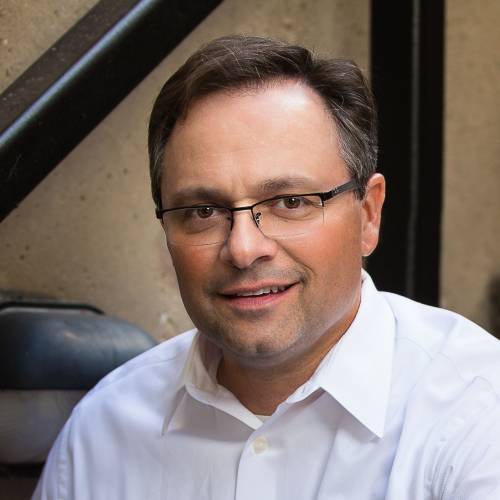Talk amongst yourselves
Living reconciliation means having hard conversations
By Ty Gomez
As I approach my 25th year as an attorney, it strikes most people as an odd confession when I admit that I don’t really enjoy conflict. Especially since I’m a litigator, and that means that virtually everyone who contacts me is angry at someone else and wants me to get in the middle of it. I can think of several instances over the years where clients or other lawyers have told me that I was too “nice” to be an attorney. I’ve always accepted those comments as compliments, but I’m not sure that was always the intent. Yet I tend to believe that being a peacemaker makes me a better litigator because I’m good at helping my clients avoid prolonged conflict whenever possible, and that is generally a positive for my clients. The catch is that to get to the peace part, you have to face the conflict, and that’s what generally makes most people uncomfortable – including me.
Most people come to church, seeking a place of peace – a sanctuary from the storms that swirl around outside its walls. I am one of those people. And there have been especially difficult times in my life when the comfort and support I found at church felt lifesaving. For a long time, my idea of Church was first and foremost as a supportive community of people who loved and cared for each other. A warm and welcoming place where a common understanding of faith bound us together and everything else got left outside the doors. Or at least that’s what we said as we avoided difficult differences. For years, that was the aspect I was mostly likely to mention to a person who asked me why I liked my church. And when my family made the difficult decision to look for a new church home, we found NorthPark to also be a warm and welcoming place, but we found something else there as well. We heard sermons that directly confronted difficult social issues.
I will never forget a particular Thanksgiving eve sermon. It came on the heels of a controversial shooting of an African-American by a Caucasian police officer. The sermon made me uncomfortable at times, but it was also revelatory. I suddenly understood what I had been missing after years of being in a church where difficult and divisive issues were largely avoided on Sunday mornings. It challenged me to be more self-aware and to re-examine what the Gospel might have to say about these issues and what I might do with that message when the service was over.
I was also impressed. Having a conversation about difficult and divisive issues takes courage and requires trust. Exposing yourself to disagreement is risky. It makes you feel vulnerable and exposed. And like most people, I don’t do vulnerable and exposed all that well. But this is why a warm and welcoming congregation of people, who are drawn together by a common understanding of faith, is the perfect place to take those risks. I also believe that the ability to have these conversations in a constructive manner is the mark of a healthy congregation, one that has found a balance between an inward focus of peaceful sanctuary and an outward focus on what the Gospel has to say about the troubles of the larger community.
This outward focus is critical to fulfilling our charge to preach the Good News. The Confession of 1967 tells us that “to be reconciled to God is to be entrusted with God’s message of reconciliation” and that we are “sent into the world as [God’s] reconciling community” where we share the “labor of healing the enmities which separate men [and women] from God and from each other…” But how can we be a part of this reconciliation if we are not able or willing to talk amongst ourselves about the difficult issues that cause the enmity we are called to address?
There is a popular saying that God comforts the afflicted and afflicts the comfortable. Some may think that it is not possible for church to be at once a place of divine affliction and comfort, but I wonder if that perspective is more about our own doubts, fears and self-imposed limitations. Does God intend for church to be a place where we can escape the difficult issues of the world or is it a sanctuary where together we can better discern what God has to say about those issues?
The most meaningful moments in my faith life seem to occur when I am in community with my church family. I am convinced that this is not a coincidence and that God not only wants us together to comfort one another, but also to struggle together. And sometimes that means we are afflicted together and made uncomfortable by a diversity of opinions on difficult issues. By the Grace of God we are moved in a way that would not be possible if we attempted to leave our differences at the door. Together, there will continue to be times when we must face conflict before we can get to the peace we crave or share that peace with anyone else. I am comforted that we will continue to be afflicted together.
Ty Gomez is a Texas native, ruling elder at NorthPark Presbyterian Church in Dallas, TX, and soccer dad. In his spare time, he practices law, plans more unfinished woodworking projects, and cooks for the women in his home.